Introduction
In the digital age, social media has become an integral part of daily life for billions of people around the globe. Platforms like Facebook, Instagram, Twitter, and TikTok are not merely tools for communication but have evolved into influential ecosystems that shape public opinion, culture, and even political landscapes. At the heart of these platforms are social media algorithms complex sets of rules and processes designed to personalize user experiences by curating content based on individual preferences, behaviors, and interactions. While these algorithms offer numerous benefits, they also come with significant implications for society. This article aims to explore the multifaceted impact of social media algorithms, focusing on their role in information dissemination, social interactions, mental health, and broader societal consequences.
Understanding Social Media Algorithms
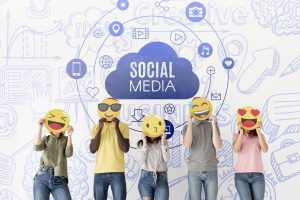
Social media algorithms are sophisticated computational processes that determine what content appears in a user’s feed. These algorithms analyze a plethora of data points, including likes, shares, comments, and even the amount of time spent on specific posts. By doing so, they create a personalized experience tailored to each user’s interests and behaviors. The primary goal of these algorithms is to maximize user engagement, which, in turn, drives advertising revenue for the platforms.
Information Dissemination

One of the most significant impacts of social media algorithms is on the dissemination of information. These algorithms prioritize content that is likely to generate high engagement, often leading to the amplification of sensational, emotionally charged, or controversial posts. While this can keep users engaged, it also has the potential to spread misinformation and fake news rapidly. The 2016 U.S. presidential election and the COVID-19 pandemic are prime examples where social media algorithms played a role in the widespread dissemination of false information, affecting public opinion and behavior.
Echo Chambers and Filter Bubbles
Social media algorithms tend to show users content that aligns with their existing beliefs and preferences, creating echo chambers and filter bubbles. In these environments, users are exposed predominantly to viewpoints that reinforce their own, limiting their exposure to diverse perspectives. This phenomenon can contribute to increased polarization and a fragmented society, where individuals are less likely to engage in constructive dialogue with those holding opposing views.
Impact on Social Interactions
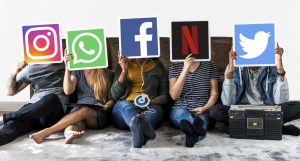
While social media platforms are designed to connect people, the algorithms governing them can also impact the quality of these interactions. By prioritizing content that generates high engagement, algorithms often promote posts that elicit strong emotional reactions, such as anger or joy. This can lead to a superficial form of interaction, where users are more focused on gaining likes and shares rather than meaningful connections. Additionally, the constant stream of curated content can create a sense of social comparison, leading to feelings of inadequacy and loneliness.
Mental Health Implications
The influence of social media algorithms on mental health is a growing area of concern. Studies have shown that excessive use of social media can contribute to anxiety, depression, and other mental health issues. The algorithms’ focus on engagement often means that users are exposed to idealized versions of reality, leading to unrealistic expectations and self-comparison. Moreover, the addictive nature of these platforms, driven by algorithmic recommendations, can result in excessive screen time and disrupted sleep patterns, further exacerbating mental health problems.
Economic and Political Consequences
Social media algorithms also have far-reaching economic and political implications. On the economic front, these algorithms can influence consumer behavior by targeting users with personalized advertisements, thereby driving sales and shaping market trends. However, this also raises concerns about privacy and data security, as users’ personal information is collected and analyzed to serve targeted ads.
Politically, social media algorithms can impact election outcomes by shaping public opinion and voter behavior. The ability to micro-target political ads based on user data means that campaigns can deliver highly personalized messages, potentially swaying undecided voters. While this can be seen as a modern approach to campaigning, it also raises ethical questions about manipulation and the spread of misinformation.
Benefits of Social Media Algorithms
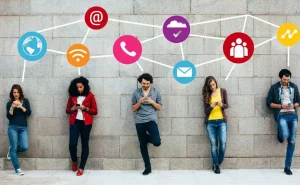
-
Enhanced User Experience
Personalized content delivery ensures that users see posts and updates that are most relevant to their interests, creating a more enjoyable and engaging experience. TikTok’s For You Page curates videos based on user interactions, making it easier for users to discover content tailored to their preferences.
-
Content Discovery
Algorithms facilitate the discovery of new content and creators, helping users find material that they might not have encountered otherwise. This can lead to the viral spread of creative ideas and diverse perspectives. YouTube’s recommendation algorithm introduces users to new channels and videos based on their viewing history, broadening their content horizons.
-
Targeted Advertising
Algorithms enable precise targeting for advertisers, allowing businesses to reach specific audiences with tailored messages. This increases the effectiveness of advertising campaigns and enhances the user experience by showing relevant ads. Facebook’s ad targeting capabilities allow businesses to reach users based on detailed demographics, interests, and behaviors, resulting in more relevant and engaging advertisements.
Challenges and Negative Impacts
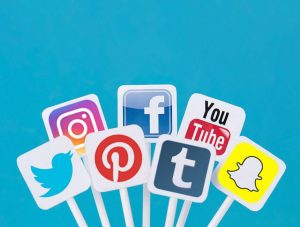
-
Echo Chambers and Filter Bubbles
Algorithms can create echo chambers by reinforcing existing beliefs and opinions. By continuously showing users content that aligns with their views, algorithms can limit exposure to diverse perspectives, leading to polarized communities. Political content algorithms on platforms like Twitter often show users posts and articles that align with their political views, reducing opportunities for constructive dialogue and understanding.
-
Misinformation and Fake News
The prioritization of engaging content can lead to the spread of misinformation and fake news. Sensational and emotionally charged content often garners more engagement, leading to its amplification by algorithms. During election cycles, misinformation spreads rapidly on social media platforms as algorithms prioritize highly engaging but potentially false content.
-
Mental Health Impacts
Constant exposure to curated content can impact mental health, leading to issues such as anxiety, depression, and low self-esteem. The pressure to conform to perceived norms and the comparison with idealized online personas can contribute to these problems. Studies have shown that excessive use of Instagram, with its focus on visual perfection, can negatively impact body image and self-esteem, especially among young users.
-
Privacy Concerns
The data used by algorithms to personalize content often includes sensitive personal information. Concerns about data privacy and security have grown as users become more aware of how their data is collected and used. Scandals like the Cambridge Analytica incident have highlighted how personal data can be misused, leading to a loss of trust in social media platforms.
Broader Societal Implications
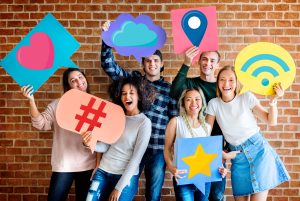
-
Influence on Public Opinion
Algorithms can shape public opinion by controlling the flow of information. The selective exposure to certain types of content can influence users’ perceptions and beliefs, impacting public discourse and political processes. During major events, such as elections or social movements, the content prioritized by algorithms can sway public opinion and affect voting behavior.
-
Cultural Trends and Norms
Social media algorithms contribute to the formation and dissemination of cultural trends. By amplifying certain content, they play a role in defining what is popular, acceptable, and aspirational within society. Viral challenges and trends on platforms like TikTok and Instagram often gain widespread popularity, influencing fashion, language, and behavior.
-
Economic Impacts
Algorithms affect the visibility of businesses and creators on social media platforms, influencing their economic success. Those who understand and leverage these algorithms effectively can gain significant competitive advantages. Influencers and businesses that successfully navigate Instagram’s algorithm can achieve higher engagement rates, leading to increased sales and brand visibility.
Addressing the Challenges
-
Algorithm Transparency
Increasing transparency about how algorithms work can help users understand why they see certain content and make informed decisions about their online behavior. Social media platforms can provide more detailed explanations and insights into their algorithms, helping users understand content ranking and recommendation processes.
-
Promoting Diverse Perspectives
Platforms can tweak algorithms to ensure a more balanced exposure to diverse perspectives, reducing the impact of echo chambers and promoting healthy discourse. Adjusting algorithms to prioritize content from a variety of sources and viewpoints can encourage users to engage with a broader range of information.
-
Fact-Checking and Content Moderation
Implementing robust fact-checking and content moderation systems can help mitigate the spread of misinformation and fake news. Facebook and Twitter have introduced fact-checking partnerships and content flags to reduce the visibility of false information on their platforms.
-
Mental Health Support
Social media platforms can introduce features and resources to support users’ mental health, such as time management tools, positive content promotion, and access to mental health resources. Instagram has implemented features to hide like counts and introduced tools to help users manage their time spent on the platform, aiming to reduce social pressure and improve well-being.
Conclusion
Social media algorithms have a profound impact on society, influencing how information is disseminated, how people interact, and even how they perceive themselves and the world around them. While these algorithms offer numerous benefits, such as personalized content and improved user engagement, they also come with significant drawbacks, including the spread of misinformation, increased polarization, and negative mental health effects. As social media continues to evolve, it is crucial for stakeholders, including platform developers, policymakers, and users, to understand and address these implications to create a more balanced and informed digital ecosystem.




